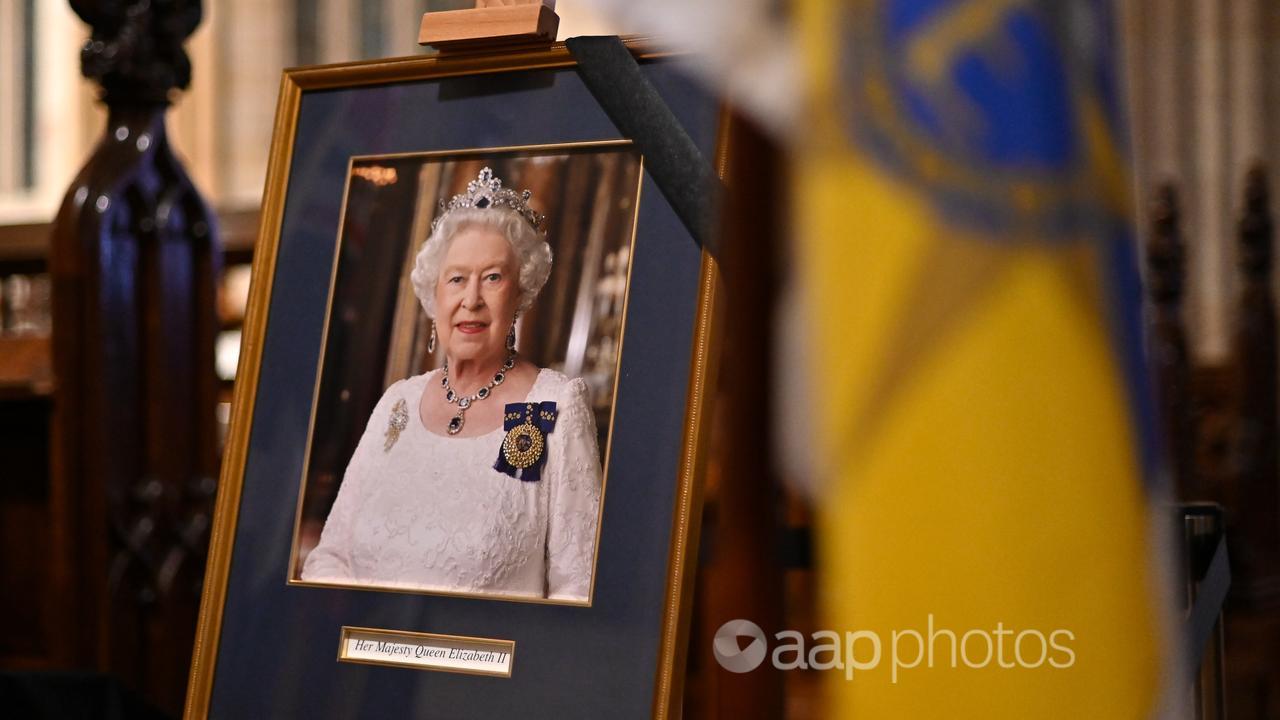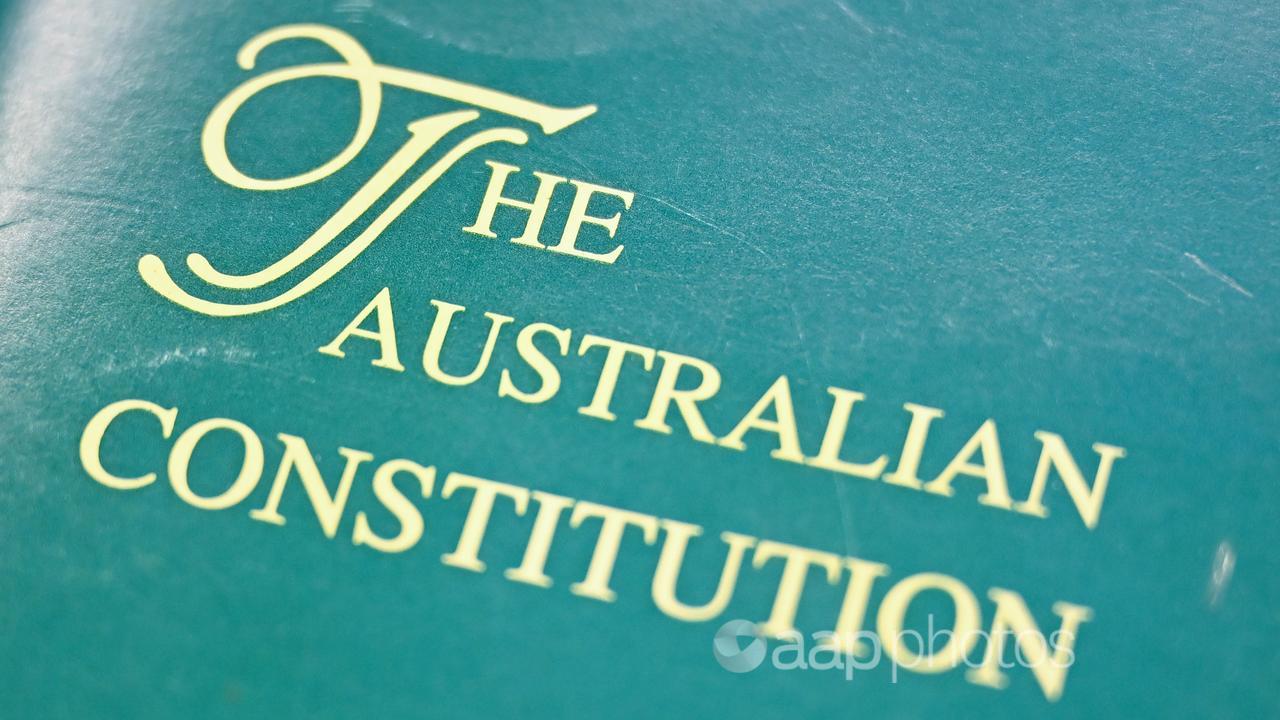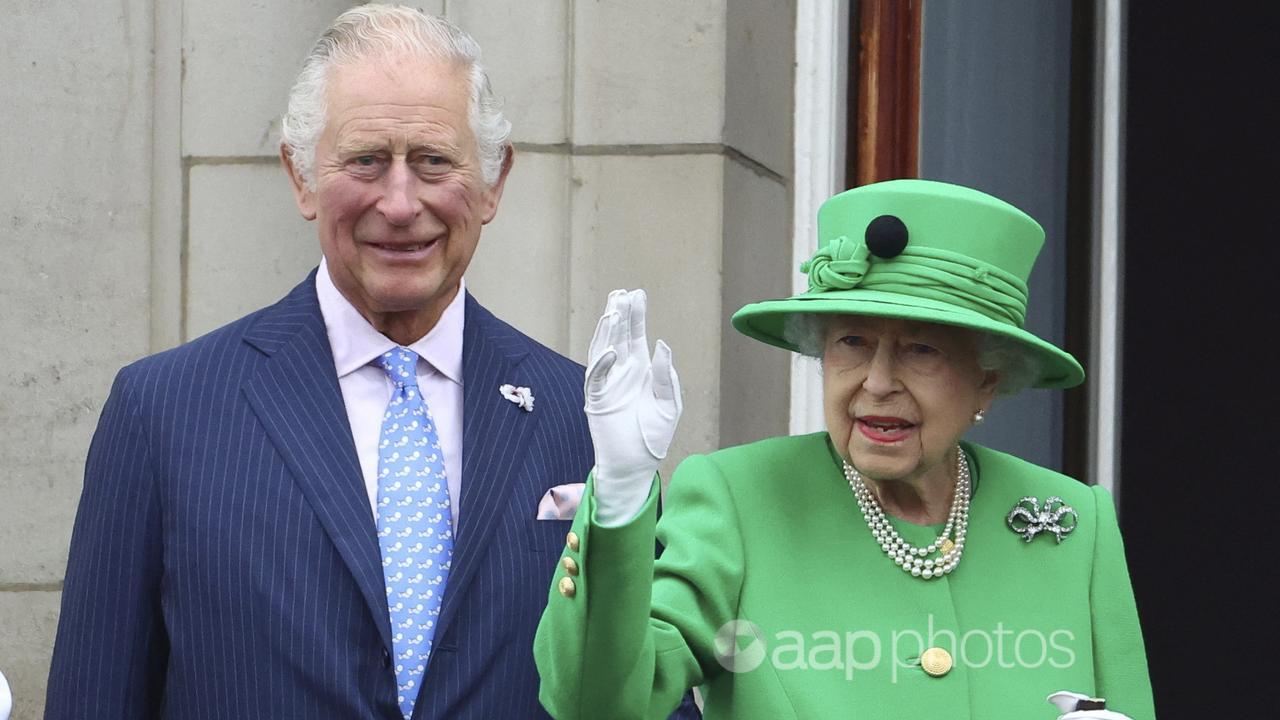A self-styled legal rights guru claims Australian courts are operating unlawfully because an obscure 1973 law still recognises Queen Elizabeth II as the “Queen of Australia”.
It’s claimed the government’s failure to update the law to properly acknowledge the succession of King Charles III has put Australia’s legal system in jeopardy.
This is false. The 1973 Royal Style and Titles Act merely sets out a formal title for the Queen, used in relation to her role as Australia’s head of state.
Constitutional experts told AAP FactCheck the Act had no impact on the validity of other laws.
In any case, other legislation states that mentions of the Queen in Australian law should automatically be taken to mean the sitting monarch.

The claim was made in a Facebook video by Mike Palmer who runs a website called Know Your Rights.
He claims the title ‘King of Australia’ “has no legal force or effect in this country”.
“Now, I’ve obviously spoken extensively in the past about the adopted title of the Queen of Australia. And that title, of course, was created by the Royal Styles and Titles Act of 1973 for the Queen,” Mr Palmer says (video mark 2min 20sec).
“There is no Royal Styles and Titles Act of 2022, when the Queen passed away, or even 2023, or even any equivalent legislation that formally and officially and lawfully created the title of the King of Australia for King Charles to adopt and use within Australia and its territories.
“Now it gets even worse … because all of the courts here in Australia at the moment all operate under this claimed power and authority of this King of Australia, which doesn’t legally exist.”
He previously made a similar false claim the 1973 Act invalidated traffic fines.
However, the two-page 1973 Act merely sets out the formal title for the Queen as: “Elizabeth the Second, by the Grace of God Queen of Australia and Her other Realms and Territories, Head of the Commonwealth”.
The 1973 Act replaced a 1953 version that used a formal title for the Queen which included the term “defender of the faith” and referenced the United Kingdom.

At the time of writing, the federal government has not updated the Act since the Queen’s death.
When contacted by AAP FactCheck, the government declined to say if there were plans for new legislation to reflect the change of monarch.
However, constitutional law professor Anne Twomey said the 1953 and 1973 acts “merely reflected the existing status of the Sovereign and gave the Sovereign an official title to use” and did not impact the law or Constitution in any substantial way.
“It should be very obvious that the Queen was Queen of Australia before 1973 as well as after 1973, and the Act made no difference to that fact,” Prof Twomey said.
“It simply gave her a formal ‘title’ to use when she exercised her powers.”
Prof Twomey said the governor-general declared King Charles III’s Australian title by proclamation on September 11, 2022, “so there can be no doubt about what title is to be used for the King in Australia”.
She also pointed to Section 16 of the Acts Interpretation Act 1901, which says any references in legislation to the Queen must be taken to mean the present monarch.
A government spokeswoman told AAP FactCheck the 1901 Act “allows for references to the Queen in Commonwealth laws to be read as references to the King”.
University of Melbourne law professor Cheryl Saunders previously told AAP FactCheck any argument about whether the Royal Style and Titles Act invalidated legislation was settled in a 1998 High Court case.

In that case, presiding justice Kenneth Hayne said “the principal burden of the argument (about the Royal Style and Titles Act rendering other legislation invalid) is that an Act of Parliament, changing the style or title by which the Queen is to be known in Australia, worked a fundamental constitutional change. The fact is, it did not”.
The preamble to the Constitution makes several mentions of “the Queen”, meaning Queen Victoria when the Act was originally passed by the British parliament in 1900.
However, the Constitution also states that all provisions of the document referring to the Queen “shall extend to Her Majesty’s heirs and successors in the sovereignty of the United Kingdom”.
Associate Professor Harry Hobbs, a constitutional and human rights lawyer at the University of Technology Sydney, said the baseless argument that the legal system was invalid due to an administrative defect was commonly made by pseudo-law advocates and so-called sovereign citizens.
“If you are hoping to avoid paying tax, or registering your vehicle, you might seek to impugn the regulations or argue that they don’t apply to you, but you could also posit that the law was made invalidly because (perhaps) the monarch is not valid,” Dr Hobbs said in an email.
“It is not only Australia… This also happens in Canada and the UK.”
The Verdict
The claim Australian courts are operating unlawfully because the government has not updated the Royal Style and Titles Act 1973 is false.
The Act formalises a title for the late Queen Elizabeth II in relation to her role as head of state but has no broader impact on the validity of legislation.
The Acts Interpretations Act 1901 clearly states that where a law references a particular King or Queen at the time the legislation was passed, this must be taken to mean the current monarch.
False – The claim is inaccurate.
AAP FactCheck is an accredited member of the International Fact-Checking Network. To keep up with our latest fact checks, follow us on Facebook, Twitter and Instagram.
All information, text and images included on the AAP Websites is for personal use only and may not be re-written, copied, re-sold or re-distributed, framed, linked, shared onto social media or otherwise used whether for compensation of any kind or not, unless you have the prior written permission of AAP. For more information, please refer to our standard terms and conditions.


















